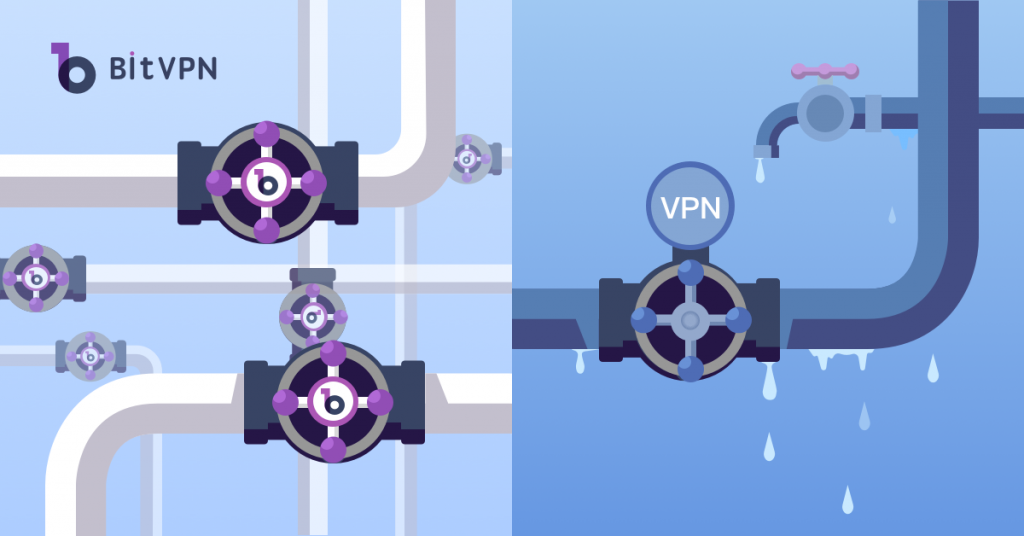Most people use VPN services to protect their online privacy. These companies allow you to create a VPN between your device and their Internet destinations. Once you connect to the other end of their VPN server, your traffic appears without showing who you are or where you are connecting from.
VPN programs are usually very simple. Setting up one shouldn’t take you more than a few minutes. However, there’s a basic problem with VPN services: Can you trust them not to track you?

First of All, What Is a VPN Server?
A Virtual Private Network (VPN) is one of the most frequently mentioned tools in modern network privacy protection. Although VPNs are used for different purposes like bypassing geological restrictions, masking IP addresses, or visiting banned content, a growing number of providers in promoting their products’ capabilities to protect users’ online privacy. Some VPN service providers, for example, claim on their websites that users are able to enjoy secure and private Internet access through their VPN server and their online activities are well encrypted to protect users’ private data from hackers or advertisers.
Can You Make Sure that Your Online Activities aren’t Tracked Even though a VPN is Used?
Some VPNs keep track of all the “places” you go on the Internet. If you’re really concerned about your online privacy, check your VPN service’s Terms and Policies to see if they keep a log of your online activities. If they do, find another VPN. Some VPNs are much darker than just keeping track of your visits. In 2015, free VPN service Hola was found selling subscriber bandwidth to paying customers of its Luminati service.
There’s a case of Facebook’s Onavo VPN. This VPN, advertised on Facebook as “protected” for Android and iPhone users, spies on you. When you install it, you allow it to share data with Facebook about what you’re doing on the phone. This is not what most people want from a “privacy” service.
Be Careful When Choosing VPN Service Providers
VPN service companies are just as vulnerable to security hackers as any other company. The popular “Hot Block” service has had a security issue where hackers can find where you have access to their VPN. With it, it won’t be long before someone finds you.
Before you subscribe to a VPN service, you should also know that your Internet speed will drop. This is because you will be sharing the VPN’s broadband connection with other users. In addition, every connection to your network must first go through the VPN tunnel before it can get connected to you. As usual, Internet connections are only as fast as the slowest links. Almost all VPN services require you to install an application on each device to support Android and iOS, so you can protect your mobile traffic from being shared.
How Exactly Does a VPN Protect You from Personal Data Leakage?
When you use a virtual private network, you are essentially using a proxy to make requests on your behalf. With a private VPN server, your connection to the proxy is encrypted, so it’s impossible for someone to snoop on your traffic to determine what kind of messages you’re exchanging with the VPN server. Typically, the role of a VPN server is to make Web requests on your behalf, not to let you make them directly.
Let’s say I want to visit a website and I don’t want others to know. Usually, I have to make a request through my ISP saying, or at least the IP address of that site. My ISP can easily record this information, for example, and sell it later to advertisers.
A VPN allows you to send an encrypted message to the VPN provider. Your ISP knows you sent a message to your VPN, but because of encryption, they can’t read the content of your message. The VPN’s ISP can see that the VPN makes a request to the website you visit, but it can’t connect the VPN’s request to the site to your request to the VPN.
What Can BitVPN Do for You?
VPNs make it impossible to track your location. With a service like BitVPN, you basically don’t let advertisers know where you are. Let’s say you’re in New York And you’re using a VPN to connect from your Android phone. You can choose the country VPN connection or even the city you want to use. If you choose the UK and then Choose London, your Internet service provider will not report the IP location of your local connection.
BitVPN can also help with protecting your anonymity. The term is slightly different from privacy. This means that you are completely anonymous. When you visit a website or buy a product, when you stream a movie or download a TV show, privacy is one thing, because no one can keep track of what you do.
However, anonymity goes a step further. Not only will you not be monitored and tracked, but your identity will be secure. No one can see what you do online (it’s private), and no one can know who you are or where you live (it’s anonymous).
This is a strange distinction because taken together, it does give you a sense of protection and security that your online activities can be tracked in all sorts of ways. In terms of surveillance, what you spread is safe, and who is spreading is safe. This includes everything about you, your name, your location, your personal information such as address and home phone number, your email, your social media data.